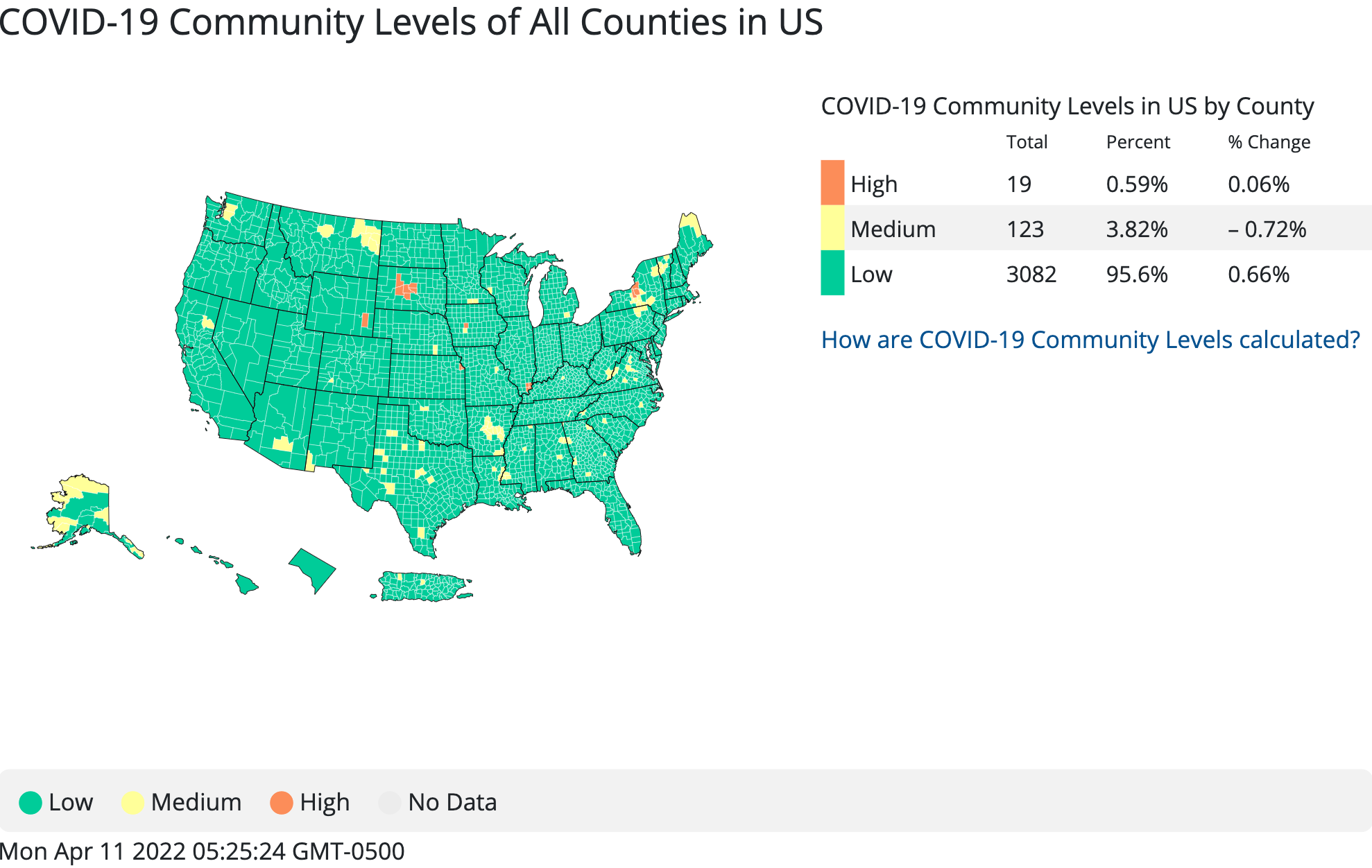Why this may be the start of 'America's 1st so-what COVID wave'

A free daily email with the biggest news stories of the day – and the best features from TheWeek.com
You are now subscribed
Your newsletter sign-up was successful
COVID-19 — and more specifically, the BA.2 "subvariant of the Omicron variant that tore through the U.S. this winter — is spreading," Sumathi Reddy writes at The Wall Street Journal, and given that people are mostly testing at home, and this variant has fairly mild symptoms (if any ) among vaccinated people, "it is likely that public-health statistics are significantly undercounting cases right now." Top public health officials are predicting a surge in cases, like parts of Europe are experiencing.
But there's a good chance "you're going to the movies and eating indoors," Reddy adds. "Your kid stopped wearing a mask to school; you no longer wear one to work. After two years of COVID precautions, you finally feel normal again. Well, mostly." The Centers for Disease Control and Prevention's (CDC) national COVID map is almost entirely low-risk green.

CBS News explains that this may end up being "America's first so-what COVID wave," because of vaccines and treatments, and crucially, because so few people are being hospitalized.
The Week
Escape your echo chamber. Get the facts behind the news, plus analysis from multiple perspectives.

Sign up for The Week's Free Newsletters
From our morning news briefing to a weekly Good News Newsletter, get the best of The Week delivered directly to your inbox.
From our morning news briefing to a weekly Good News Newsletter, get the best of The Week delivered directly to your inbox.

Rather than focusing on case counts, "hospitalization rates are likely a more accurate indicator of transmission and reflect the severity of infections," the Journal reports. And the U.S. "is currently reporting 14,802 coronavirus hospitalizations, the lowest mark since reporting began in July 2020," CNN's Ryan Struyk tweeted Sunday night, citing Health and Human Services data.
When should you worry and change your behavior? "Consider both the rate of increase as well as how long cases have been rising," Reddy reports. "A steady weekly rise of 5 percent for multiple weeks might signal that it's time to resume some protective measures, such as masking indoors," but "if cases are increasing by 50 percent week over week, that's a red flag."
Another sign things are feeling more "normal" on the COVID-19 front is that President Biden's approval rating on his response to the pandemic has risen to 58 percent, from 50 percent in January, ABC News reported Sunday. That poll, conducted with Ipsos, surveyed a national sample of 530 adults between April 8-9, and its margin of sampling error is ±4.9 percentage points.
A free daily email with the biggest news stories of the day – and the best features from TheWeek.com
Peter has worked as a news and culture writer and editor at The Week since the site's launch in 2008. He covers politics, world affairs, religion and cultural currents. His journalism career began as a copy editor at a financial newswire and has included editorial positions at The New York Times Magazine, Facts on File, and Oregon State University.
-
 What to know before filing your own taxes for the first time
What to know before filing your own taxes for the first timethe explainer Tackle this financial milestone with confidence
-
 The biggest box office flops of the 21st century
The biggest box office flops of the 21st centuryin depth Unnecessary remakes and turgid, expensive CGI-fests highlight this list of these most notorious box-office losers
-
 What are the best investments for beginners?
What are the best investments for beginners?The Explainer Stocks and ETFs and bonds, oh my
-
 A Nipah virus outbreak in India has brought back Covid-era surveillance
A Nipah virus outbreak in India has brought back Covid-era surveillanceUnder the radar The disease can spread through animals and humans
-
 Trump HHS slashes advised child vaccinations
Trump HHS slashes advised child vaccinationsSpeed Read In a widely condemned move, the CDC will now recommend that children get vaccinated against 11 communicable diseases, not 17
-
 Covid-19 mRNA vaccines could help fight cancer
Covid-19 mRNA vaccines could help fight cancerUnder the radar They boost the immune system
-
 FDA OKs generic abortion pill, riling the right
FDA OKs generic abortion pill, riling the rightSpeed Read The drug in question is a generic version of mifepristone, used to carry out two-thirds of US abortions
-
 The new Stratus Covid strain – and why it’s on the rise
The new Stratus Covid strain – and why it’s on the riseThe Explainer ‘No evidence’ new variant is more dangerous or that vaccines won’t work against it, say UK health experts
-
 RFK Jr. vaccine panel advises restricting MMRV shot
RFK Jr. vaccine panel advises restricting MMRV shotSpeed Read The committee voted to restrict access to a childhood vaccine against chickenpox
-
 Texas declares end to measles outbreak
Texas declares end to measles outbreakSpeed Read The vaccine-preventable disease is still spreading in neighboring states, Mexico and Canada
-
 RFK Jr. shuts down mRNA vaccine funding at agency
RFK Jr. shuts down mRNA vaccine funding at agencySpeed Read The decision canceled or modified 22 projects, primarily for work on vaccines and therapeutics for respiratory viruses
